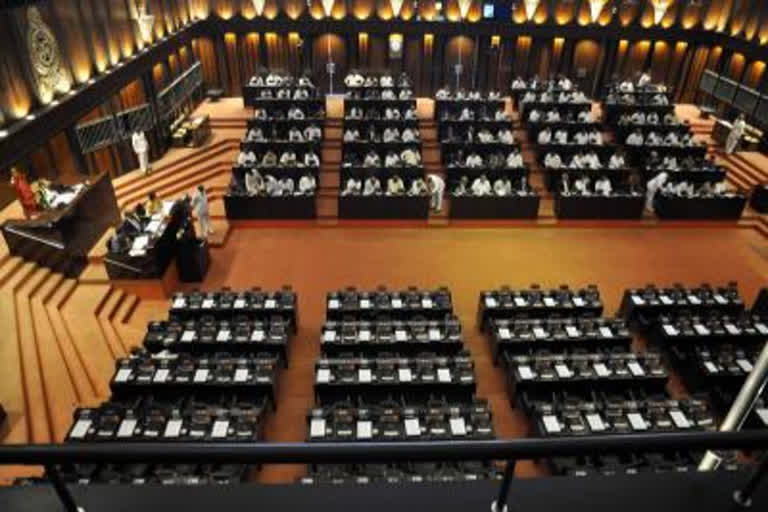Colombo: The security has been beefed up in and around Sri Lanka's Parliament complex on Tuesday after the Speaker lodged a complaint with the Inspector General of Police calling for a detailed investigation to be conducted into certain inflammatory posts published on social media threatening Members of Parliament. The complaint by Speaker Mahinda Yapa Abeywardena came hours before Parliament was poised to accept the nominations for the post of president, which fell vacant last week after Gotabaya Rajapaksa fled the country and later resigned.
The Parliament is expected to elect the new president on July 20. On Monday, Sri Lankan Members of Parliament from the ruling party Sri Lanka Podujana Peramuna (SLPP) had complained of receiving threat messages on social media, warning them against voting for Sri Lanka's Acting President Ranil Wickremesinghe. Consequently, the police and the country's armed forces have been stationed in and around the Parliament complex on Tuesday.
Police have warned that strict action would be taken against those who had created, published and circulated such threatening posts against lawmakers on social media. Sajith Premadasa, the leader of the principal opposition party Samagi Jana Balawegaya (SJB), who is opposed to Wickremesinghe, is trying to strike a deal with Dullas Alahapperuma, a staunch Sinhala Buddhist nationalist and a key member from the breakaway group of SLPP.
Also read:India has no role in facilitating Rajapaksa's travel from Sri Lanka: MEA
The ex-Cabinet Minister of Information and Mass Media and former newspaper columnist is being seen as a left-leaning political ideologue. He has held ministerial positions since 2005 and enjoys the reputation of having a clean public life. His task too would be uphill given his position as a breakaway member. Premadasa's economic policy guru Harsha de Silva has tweeted that the SJB and the Alahapperuma team had agreed for a common minimum economic programme if they form the next Sri Lanka government.
Wednesday's vote would also be a rare occasion when the House Speaker will vote. Never in the history of the presidency since 1978, Parliament had voted to elect a president. Presidential elections in 1982, 1988, 1994, 1999, 2005, 2010, 2015 and 2019 had elected them by popular vote. The only previous occasion when the presidency became vacant mid-term was in 1993 when president Ranasinghe Premadasa was assassinated.
